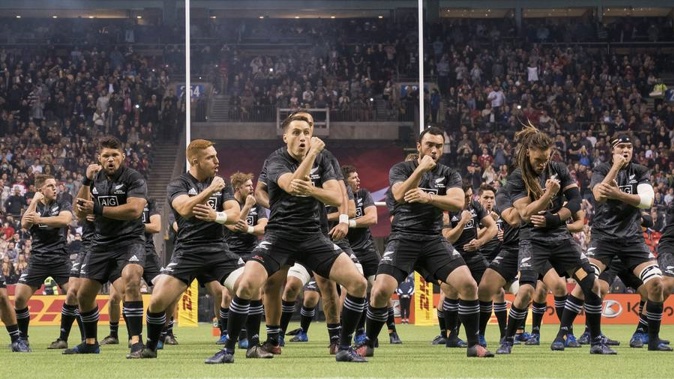
The cultural identity of individual players influences a rugby team's style of play, according to researchers who analysed the Maori All Blacks and the Japan Test squad.
The Massey University study, co-authored by former Black Ferns skipper Dr Farah Palmer, says the Maori All Blacks are more spontaneous and take more risks than the Brave Blossoms, who have a mix of nationalities.
The researchers believe the difference is down to the players' cultural identity and norms.
They say the Maori All Blacks have more positive feelings toward their culture and stronger feelings about maintaining it.
As well, they have "a more playful" team personality, while the Japan squad express a more serious-minded and goal-oriented nature.
Dr Palmer suggests that the contrast reflects the context within which the teams are formed.
The Maori All Blacks tend to go on tour at the end of a long Super Rugby and provincial season and their cultural legacy promotes flair and pride in representing Maori.
"Maori rugby is known for being an exhilarating and unifying experience for players and spectators," Dr Palmer said.
"Many of the players enjoy the opportunity to celebrate and explore their Maori identity in a rugby context."
Co-author Dr Yusuke Kuroda said that, in the professional era, it was important to understand the effect of cultural identity and personality on a team's style.
Some teams relied on foreign-born players and there were fewer sides consisting of one particular ethnic group.
For the study, which has been published in the journal Heliyon, 57 professional players were surveyed to measure team characteristics and assess cultural identity.
Dr Kuroda said that, even though Japan seemed a more culturally diverse side, they prized unity, structure and conformity, reflecting the dominant values in Japanese culture.
Take your Radio, Podcasts and Music with you









